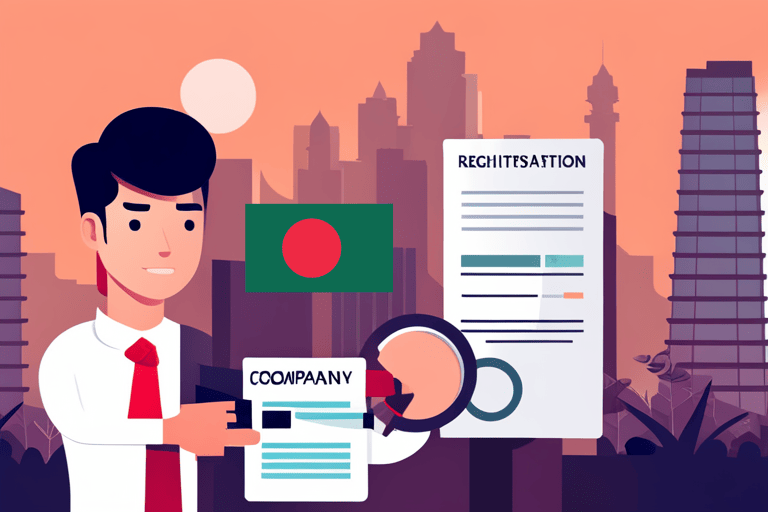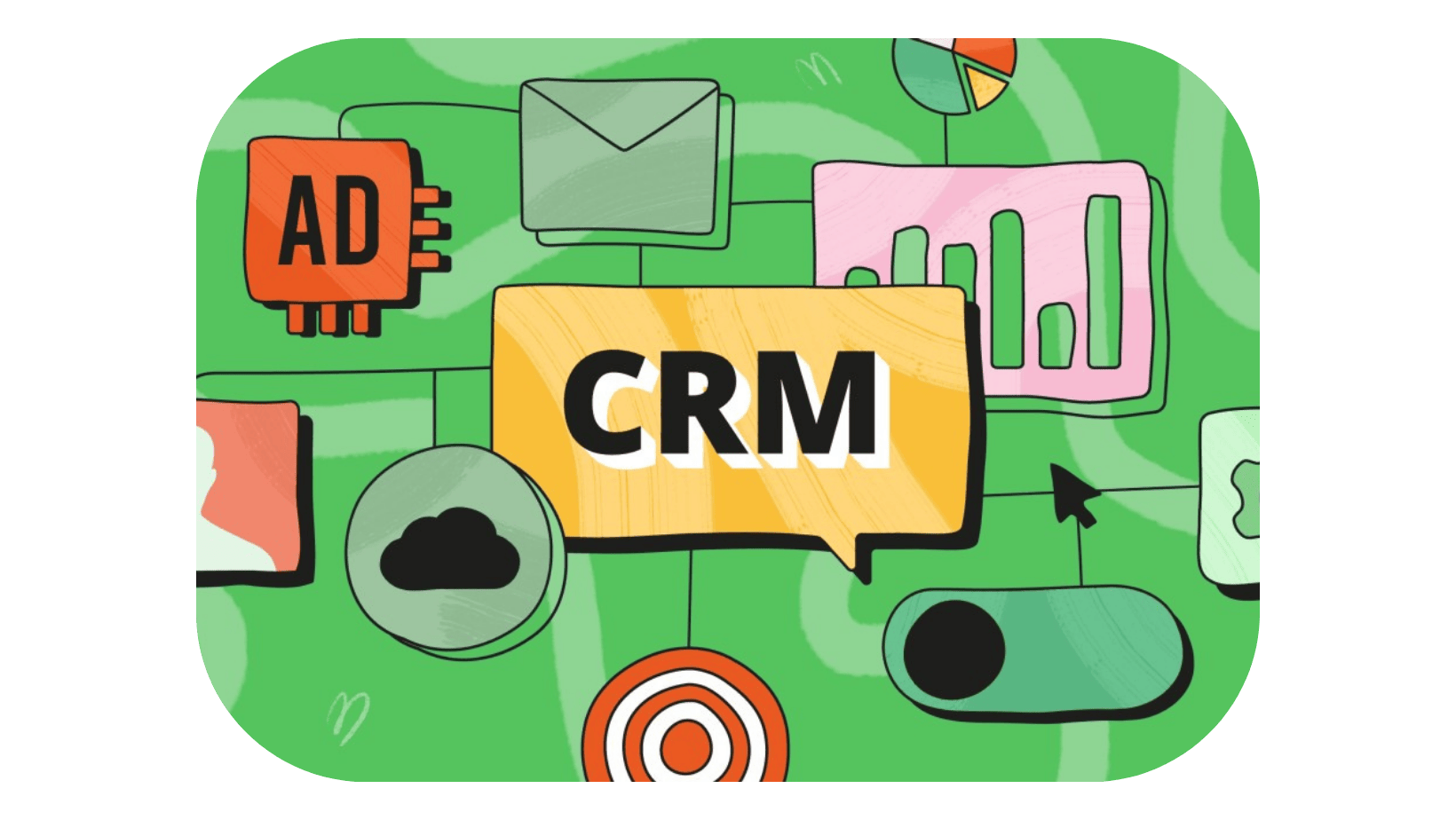
CRM software stands for Customer Relationship Management software. It helps businesses manage interactions with current and potential customers.
CRM software plays a crucial role in modern business operations. It organizes customer data, streamlines processes, and improves customer relationships. Companies use CRM to track sales, manage leads, and provide customer support. It centralizes all customer information, making it accessible to different departments.
This improves communication and efficiency across the organization. CRM tools often include features like email marketing, analytics, and workflow automation.
By leveraging CRM software, businesses can enhance customer satisfaction and drive sales growth. Adopting a CRM system can lead to better decision-making and more effective marketing strategies. It serves as a backbone for maintaining strong customer relationships.
What is CRM Software?
Customer Relationship Management (CRM) software is a vital tool. It helps businesses manage interactions with current and potential customers. This software streamlines processes and improves profitability.
Definition
CRM software is a technology for managing all your company’s relationships. It keeps track of interactions with customers and potential clients. It stores information like customer contact details, sales history, and preferences.
Importance In Business
CRM software is crucial for any business. It helps in understanding customer needs better. Businesses can tailor their marketing efforts based on customer preferences. This leads to increased sales and customer satisfaction.
CRM software also helps in managing customer service. It ensures that customer issues are resolved quickly. Happy customers are more likely to return and recommend your business.
| Feature | Benefit |
|---|---|
| Customer Data Management | Better understanding of customer needs |
| Sales Tracking | Improved sales performance |
| Customer Service | Quick issue resolution |
- Customer Data Management: Helps in organizing customer information.
- Sales Tracking: Monitors sales activities and performance.
- Customer Service: Ensures prompt and effective customer support.
- Implementing CRM software boosts business efficiency.
- It enhances customer relationships and satisfaction.
- It provides valuable insights into customer behavior.
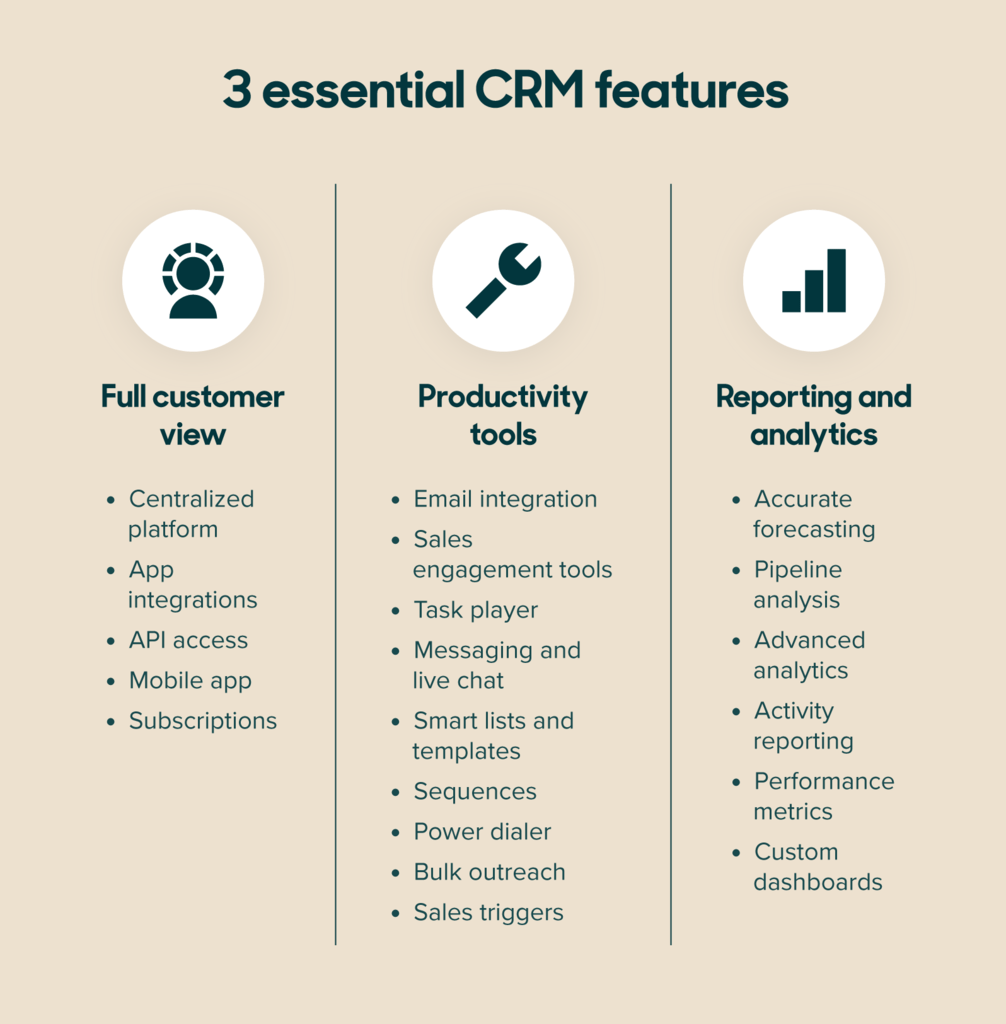
Core Features Of Crm Software
CRM software, or Customer Relationship Management software, is essential for businesses. It helps manage customer interactions, streamline processes, and improve profitability. Let’s dive into the core features of CRM software that make it a valuable tool.
Contact Management
Contact Management is a vital feature of CRM software. It allows businesses to store and organize customer information. This includes names, addresses, phone numbers, and email addresses.
- Easy access to customer details
- Track communication history
- Segment customers for targeted marketing
Having all customer data in one place improves customer service. It also helps in creating personalized experiences.
Sales Management
Sales Management in CRM software helps monitor sales activities. This feature covers lead tracking, opportunity management, and sales forecasting.
| Feature | Benefit |
|---|---|
| Lead Tracking | Identifies potential customers |
| Opportunity Management | Tracks sales opportunities |
| Sales Forecasting | Predicts future sales |
This feature ensures that sales teams can focus on closing deals. It also helps in achieving sales targets efficiently.
Customer Support
Customer Support is another crucial feature of CRM software. It includes tools for managing customer inquiries and resolving issues.
- Ticketing system for tracking issues
- Knowledge base for self-service support
- Automated responses to common queries
These tools ensure timely and effective customer support. They help in building long-term customer relationships.
Types Of Crm Software
CRM software helps businesses manage customer relationships. There are different types of CRM software. Each type serves a unique purpose and function. Understanding these can help you choose the right CRM. Below, we dive into the three main types: Operational, Analytical, and Collaborative CRM.
Operational CRM
Operational CRM focuses on automating and streamlining business processes. It includes sales automation, marketing automation, and service automation.
- Sales Automation: Manages sales tasks and processes.
- Marketing Automation: Handles marketing campaigns and activities.
- Service Automation: Streamlines customer service processes.
This type of CRM improves efficiency. It reduces manual tasks and increases productivity. It also helps in managing customer interactions effectively.
Analytical CRM
Analytical CRM focuses on analyzing customer data. It helps in understanding customer behavior and preferences. This type uses data mining, pattern recognition, and data analysis.
- Data Mining: Extracts useful information from data.
- Pattern Recognition: Identifies patterns in customer behavior.
- Data Analysis: Analyzes customer data for insights.
It helps in making informed decisions. It enhances customer satisfaction and loyalty. Businesses can also predict trends and improve strategies.
Collaborative CRM
Collaborative CRM focuses on improving communication. It ensures all departments work together seamlessly. This type includes interaction management and channel management.
- Interaction Management: Manages all customer interactions.
- Channel Management: Manages communication channels.
It helps in sharing information across departments. It improves customer service and satisfaction. It also enhances team collaboration and efficiency.
Benefits Of Using Crm Software
Customer Relationship Management (CRM) software helps businesses manage their customer interactions. It offers various benefits that can significantly enhance business operations. Let’s explore the key benefits of using CRM software.
Enhanced Customer Relationships
CRM software helps in maintaining detailed customer records. This allows businesses to understand customers better. Knowing customer preferences helps in offering personalized services. It also ensures timely follow-ups, increasing customer satisfaction.
- Stores customer information
- Tracks communication history
- Provides personalized services
Improved Sales Performance
CRM systems help in managing sales pipelines effectively. This helps sales teams prioritize leads and close deals faster. CRM software provides insights into sales performance. It helps in identifying top-performing products and services.
- Manages sales pipelines
- Prioritizes leads
- Provides sales insights
Streamlined Processes
CRM software integrates various business processes into one platform. This reduces manual work and errors. Automating tasks like data entry saves time. It also ensures that the information is accurate and up-to-date.
| Process | Benefits |
|---|---|
| Data Entry | Automated and error-free |
| Customer Support | Faster response times |
| Sales Tracking | Real-time updates |
Choosing The Right Crm Software
Selecting the best CRM software for your business is crucial. The right CRM helps manage customer relationships effectively. It also boosts sales and enhances customer service. This section guides you on how to choose the perfect CRM software.
Assessing Business Needs
First, understand your business needs. List down what you want from a CRM. Do you need it for sales, marketing, or customer service? Each department may have different requirements. Ensure the CRM aligns with your goals.
- Identify your target audience
- Determine the size of your business
- Consider the complexity of your operations
Evaluating Features
Next, look at the features of each CRM. Some CRMs offer advanced analytics. Others focus on automation. Match the features to your needs.
| Feature | Benefit |
|---|---|
| Automation | Reduces manual work |
| Analytics | Provides insights |
| Integration | Works with other tools |
Budget Considerations
Finally, consider your budget. CRM software comes at various price points. Some are free, while others can be costly. Look for a CRM that fits your budget. But, don’t compromise on essential features.
- Set a budget range
- Compare different CRM pricing plans
- Check for hidden costs
Investing in a good CRM can save money in the long run. Choose wisely.
Implementation Best Practices
Implementing CRM software can transform your business. The process needs careful planning, training, and data migration. Here are some best practices to ensure a smooth implementation.
Planning And Strategy
Start with a clear plan and strategy. Identify your business goals. Understand what you want to achieve with CRM software. Involve key stakeholders in the planning stage. Assign roles and responsibilities. Create a timeline for the implementation process. Make sure to include milestones and deadlines.
| Step | Action |
|---|---|
| 1 | Define Goals |
| 2 | Involve Stakeholders |
| 3 | Assign Roles |
| 4 | Create Timeline |
Employee Training
Employee training is crucial for successful CRM implementation. Train your staff on how to use the software. Provide hands-on training sessions. Offer resources like guides and tutorials. Encourage questions and feedback during training. Make sure everyone feels comfortable with the new system.
- Provide hands-on training sessions
- Offer guides and tutorials
- Encourage questions and feedback
Data Migration
Data migration is a critical step. Ensure your data is clean and accurate before migrating. Plan the migration process carefully. Backup your data to avoid loss. Test the migration process on a small dataset first. This helps identify any issues before full migration.
- Clean and verify data
- Backup existing data
- Test migration on a small dataset
- Identify and fix issues
Common Challenges And Solutions
Implementing CRM software can transform how businesses manage customer relationships. However, it presents common challenges. Understanding these challenges and their solutions can ensure successful CRM adoption.
User Adoption
One major challenge is getting users to adopt the new system. Employees may resist change or find the software complex. Ensuring ease of use and providing proper training can significantly help.
- Provide Training: Offer comprehensive training sessions to all users.
- Ease of Use: Choose a user-friendly CRM with an intuitive interface.
- Incentivize Adoption: Reward employees who effectively use the CRM.
Data Quality
Maintaining high-quality data in the CRM is crucial. Poor data quality can lead to inaccurate insights and ineffective strategies. Implementing strict data entry protocols can mitigate this issue.
- Data Entry Standards: Set clear guidelines for data entry.
- Regular Audits: Conduct regular data quality audits.
- Automated Data Cleaning: Use tools to clean and update data automatically.
Customization
CRM software must align with specific business needs. Standard CRM features may not always fit. Customizing CRM to match business processes ensures better functionality and efficiency.
- Identify Needs: List business requirements before customizing.
- Flexible CRM: Choose CRM software that allows easy customization.
- Professional Help: Hire experts for complex customizations.
Future Trends In Crm Software
The world of CRM software is evolving rapidly. Businesses are leveraging new technologies to enhance customer relationships. Let’s explore the future trends shaping CRM software.
Ai And Automation
Artificial Intelligence (AI) is transforming CRM software. AI can analyze customer data quickly. It helps predict customer behavior and preferences. Automation streamlines repetitive tasks. This saves time and reduces errors.
Businesses use chatbots to engage with customers 24/7. AI-driven recommendation engines suggest products based on customer history. These technologies enhance customer satisfaction and loyalty.
Integration With Other Tools
Modern CRM software integrates seamlessly with other tools. This includes marketing platforms, e-commerce systems, and social media. Integration provides a unified view of customer interactions. This helps businesses make informed decisions.
Consider a CRM integrated with an email marketing tool. It can track email opens and clicks. This data helps tailor future campaigns. Such integrations improve efficiency and effectiveness.
Mobile Crm
Mobile CRM is becoming essential. Sales teams need access to customer data on the go. Mobile CRM apps provide this flexibility. They offer features like contact management and task tracking.
With mobile CRM, businesses can respond to customer inquiries quickly. It enhances productivity and customer service. Mobile CRM supports offline access. This ensures uninterrupted service even without internet.
Case Studies Of Crm Success
Customer Relationship Management (CRM) software is vital for businesses. It helps improve customer interactions, streamline processes, and boost profitability. Let’s explore some real-world examples of CRM success.
Small Business Growth
Small businesses often struggle with managing customer data. A local bakery implemented a CRM system. They tracked customer preferences and purchase history. This helped them send personalized offers and discounts.
The result? A 20% increase in repeat customers. Their sales grew by 15% within six months. The CRM system made all the difference.
Enterprise Transformation
An international retail giant faced challenges with customer engagement. They chose a robust CRM solution. This helped them manage customer data across multiple channels.
They saw a 25% improvement in customer satisfaction. Their sales teams became more efficient. They closed deals faster and increased revenue by 30% in one year.
Customer Retention
A telecom company struggled with high customer churn. They integrated a CRM platform to analyze customer behavior. This allowed them to identify at-risk customers and offer targeted incentives.
Within a year, their retention rate improved by 40%. Customer complaints decreased, and loyalty increased. The CRM system turned their situation around.
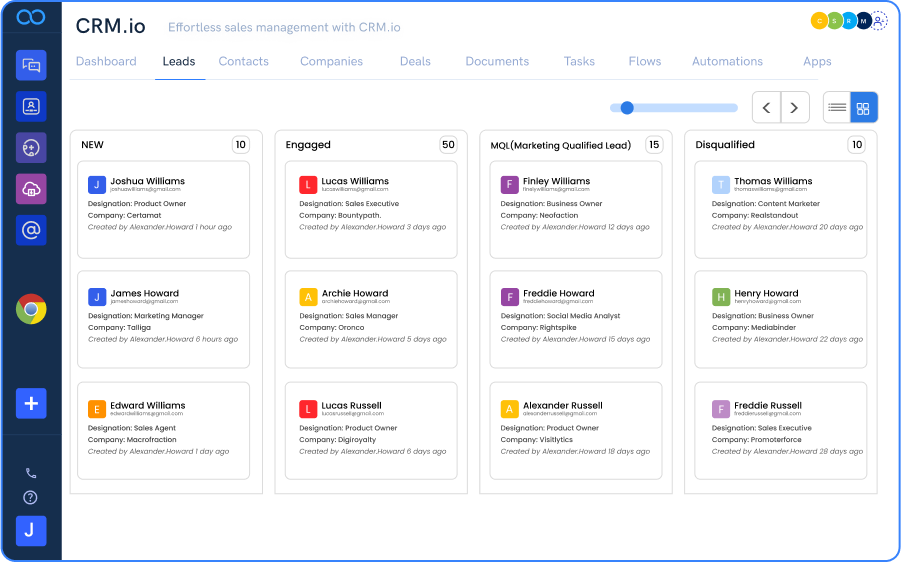
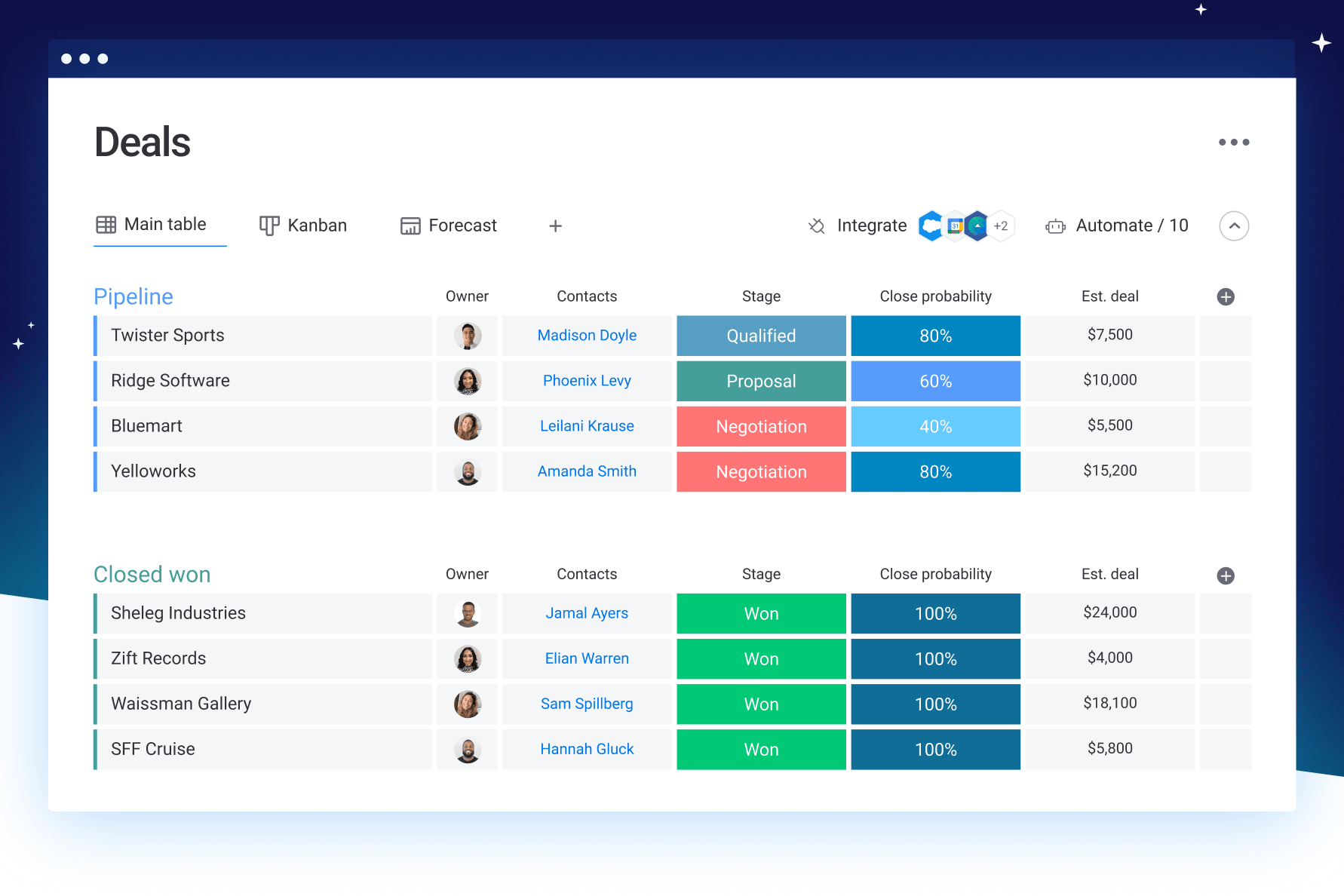
Frequently Asked Questions
What Is Crm Software?
CRM software is a tool that helps businesses manage customer relationships. It streamlines processes and improves customer interactions. This leads to better customer satisfaction and increased sales.
How Does Crm Software Work?
CRM software collects customer data from various channels. It organizes and analyzes this data to provide insights. This helps businesses improve their customer service and marketing strategies.
Why Is Crm Software Important?
CRM software is important for managing customer interactions efficiently. It helps in understanding customer needs and improving customer satisfaction. This leads to increased loyalty and sales.
What Are The Benefits Of Crm Software?
CRM software offers numerous benefits. It improves customer relationships, streamlines processes, and boosts sales. It also provides valuable insights through data analysis.
CRM software streamlines customer interactions, boosts sales, and enhances customer satisfaction. It is essential for modern businesses. Implementing CRM can lead to better data management and improved efficiency.
Embrace CRM software to stay competitive and foster long-term customer relationships. Make the most of technology to grow your business effectively.


